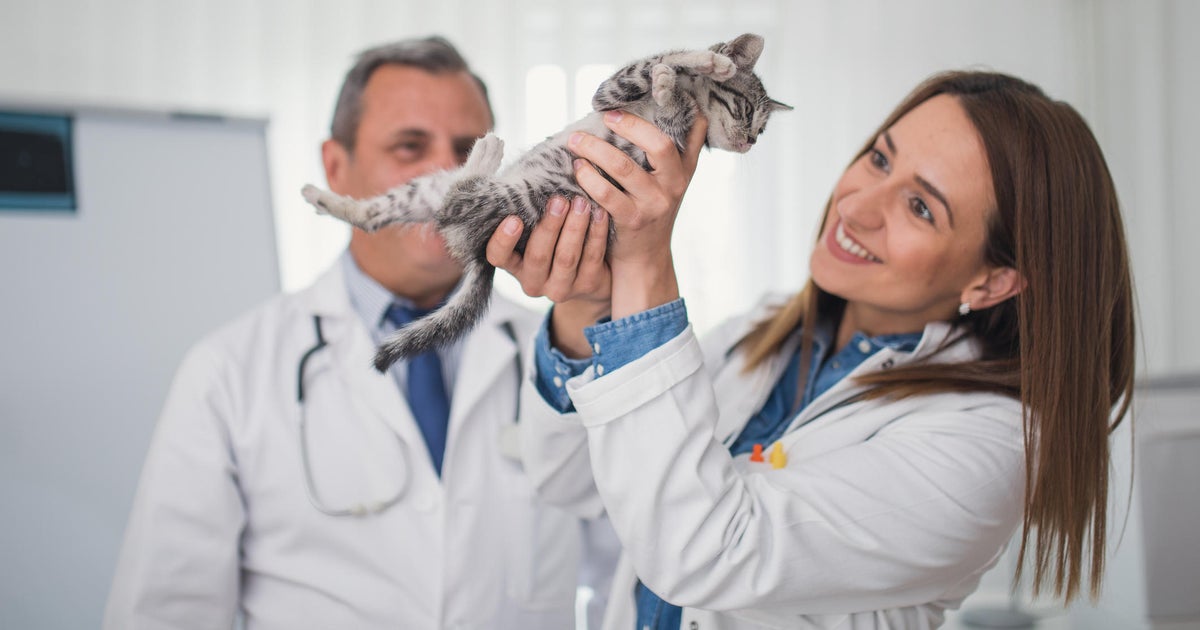
Getty Images
When you become a pet owner, you know to add pet-related expenses (like trips to the veterinarian, food and more) to your budget. For many dog and cat owners, that means adding the monthly cost of pet insurance.
There are multiple reasons to insure your pets, but peace of mind that your pet is protected and potential long-term savings is likely at the top of the list. Just make sure you do your homework and compare vendors and policies.
If you’re in the market for pet insurance or want to expand the protection your pet has, it helps to speak with a professional. They can answer your questions and provide a quote so you know what to expect.
How to buy pet insurance
The process of buying pet insurance is easy. Most of the time you can complete the entire process online. You simply have to fill out your information and basic information about your pet (age, weight, breed, etc.) on a pet insurance provider’s website and then get an estimated cost. You create an account with the provider, then choose a plan, the type of coverage you want and confirm.
However, before you make any official commitments, follow these four steps to ensure you save time and money.
Shop and compare providers
Before signing on the dotted line make sure you’ve reviewed multiple pet insurance companies to see what they’re offering (review at least three). This will help give you a baseline understanding of coverage plans and costs. You also won’t overpay when you know the industry standards.
Just make sure you’re making an apples-to-apples comparison so you know exactly what to expect. For example, if you get a quote for a 2-year-old, 8-pound cat, then get a quote for the same age, weight, and breed type from a second and third provider, too. This will ensure that you have an accurate estimate to evaluate.
Compare your options by using the table below.
Start early
When it comes to purchasing pet insurance it pays to start early. Premiums are the cheapest when the pet is young and healthy. They steadily rise in price as the pet ages and as health issues arise.
You’ll also want to purchase insurance before the animal’s health concerns become more prevalent. Significant pre-existing medical conditions (like diabetes) will eliminate the chances of the insurer reimbursing you for those conditions in the future.
So sign up with a provider while your cat or dog is young and healthy or it’ll be more expensive in the future.
Get medical advice
Your veterinarian is well-versed in a variety of breeds of cats and dogs. Accordingly, they are dialed in on any health issues your pet may have (or be prone to). Speak to them and have them help you build a protection plan. They can help tailor your pet insurance so that you only pay for what you need and not for anything you don’t. This will both help you save money and ensure that the insurance you wind up getting is valuable.
Review your coverage options
An accident-only policy could be a cost-effective option. It will only cover your pet in emergencies (like broken bones) or if they swallowed something they shouldn’t have. Accordingly, the coverage will be less expensive than more comprehensive policies. But maybe that’s all you’ll need. For decent protection, at a reasonable rate, this may be the way to go.
Make sure you don’t overpay when buying pet insurance. Be cognizant of specific cat and dog breeds, too. Some breeds are significantly more expensive to insure than others.
Not sure what kind of pet insurance rates your dog or cat would qualify for? Speak with a pet insurance expert today who can help you build a cost-effective plan.









